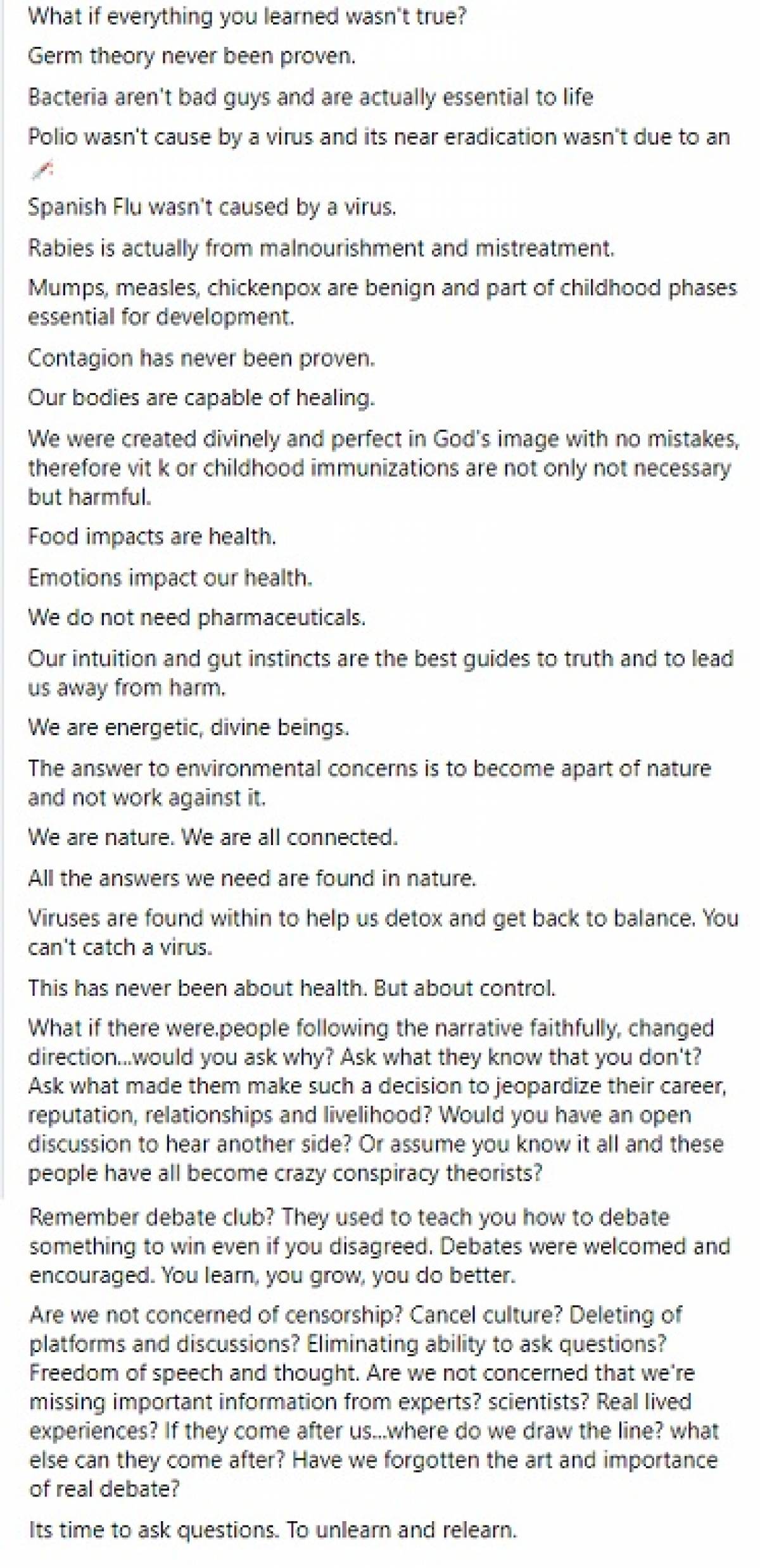The Canadian PressStaff
Saturday, September 4, 2021
ST. JOHN'S, NFLD. -- A one-per-cent tax on some of Canada's wealthiest residents would be enough to fund the start of a national dental care program, the leader of the federal NDP said Saturday as he filled in details on a key plank of his party's election platform.
The plan outlined by Jagmeet Singh revisited a frequent theme of his electoral campaign as he insisted Canada's ultra-rich should be paying more to cover the cost of a host of social programs.
Funding for government-subsidized dental care, he said, would come from a one-per-cent tax on Canadians with a net wealth of $10 million or more.
Singh said the resulting cash would provide full dental coverage for uninsured families earning less than $60,000 a year and partial coverage for families with less than $90,000 in annual income, noting the measures would take effect immediately under an NDP government.
"This is completely doable in the scheme of federal programs, this is very achievable," Singh said during a campaign stop in St. John's. "It would provide relief to people who are worried that they can't afford the care that they need."
Singh said his ultimate goal would be to eventually add complete dental care coverage as a benefit under Canada's health-care program, estimating the new plan would cost around $1.5 billion in its first year before leveling off to just under $1 billion a year later.
The plan is similar to the one Singh campaigned on in 2019, which also offered help for families earning less than $90,000 a year as well as a sliding copayment for families in the $70,000 to $90,000 annual earning bracket.
When asked about the similarities to the previous version of the plan, Singh said the party was dedicated to continuing the fight for improved medical care.
"It's not a surprise that we are still campaigning on the things we believe in because we haven't changed our beliefs," he said. "People have realized more than ever that our health-care system has had gaps. They've seen that COVID-19 didn't create the problems, but certainly exposed a lot of them."
Singh also voiced a proposal for tackling what he described as other gaps in the national health-care system.
He said leaning on residents with international training could be a key tool in shoring up the health-care sector and addressing staffing shortages exacerbated during the pandemic and its aftermath.
"There are a lot of very talented people that come to Canada with international experience ... but then when they get here that (experience) is not recognized and they can't practice in their fields," Singh said. "I think that could also help us with medically trained professionals and other professionals that have great training and experience but aren't able to use that when they come to Canada."
This report by The Canadian Press was first published Sept 4, 2021.
---
This story was produced with the financial assistance of the Facebook and Canadian Press News Fellowship.

New Democratic Party Leader Jagmeet Singh and his wife Gurkiran Kaur Sidhu hold hands as they walk to the campaign plane in St. John's, Saturday, Sept. 4, 2021.
(THE CANADIAN PRESS / Adrian Wyld)
Singh renews pledge of federal dental care, says Liberals take Atlantic Canada for granted
Program would subsidize expenses for Canadians earning less than $90,000 per year
Ryan Patrick Jones · CBC News · Posted: Sep 04, 2021

Modelling prompts campaign rethink
Singh also announced that his party is making changes to the way it campaigns as a result of new national COVID-19 modelling, released yesterday, that projected that Canada could see up to 15,000 cases per day by the end of the month if the rate of vaccination does not increase and more restrictive public health measures are not introduced.
The NDP leader's campaign will soon implement a rapid testing program, Singh said, something the Liberal and Conservative campaigns already have in place.
In addition, Singh said the party is planning to change the types of campaign events it holds to avoid large gatherings of people.
"The new evidence that's come out from our public health experts in Canada is really sobering," he said. "Things look like they could get really bad."
Program would subsidize expenses for Canadians earning less than $90,000 per year
Ryan Patrick Jones · CBC News · Posted: Sep 04, 2021

New Democratic Party Leader Jagmeet Singh speaks during a campaign stop in St. John's, N.L., on Saturday, Sept. 4, 2021. Speaking alongside two dental hygienists, Singh pledged to bring in a federal program to help Canadians who earn less than $90,000 per year pay for dental expenses. (Adrian Wyld/The Canadian Press)
NDP Leader Jagmeet Singh today repeated a promise from the party's 2019 campaign to implement a federal program that would subsidize the costs of dental care for Canadians who lack insurance.
Singh made the pledge on the 21st day of the federal election campaign in the Newfoundland and Labrador riding of St. John's South–Mount Pearl as the party fights to expand its Atlantic Canada caucus from one seat.
"I've heard story after story from people who cannot get their teeth looked after," said Singh.
"This is where we see one of the greatest divides: If you've got the right job, if you have enough money, you can get your teeth looked after. But for everyone else, they're kind of left high and dry."
Watch NDP campaign to start rapid testing
In light of recent COVID-19 modelling released by Canada's chief public health officer, NDP Leader Jagmeet Singh says his team will now start administering rapid tests on the campaign and cut the size of events. 0:36
Singh said the program would partly cover expenses of Canadians with an annual income of less than $90,000 per year, and fully cover people who earn less than $60,000 per year.
In a news release, the NDP said the program would benefit 6.5 million Canadians and save the average family $1,200 in dental fees each year.
The party campaigned on a similar plan in 2019, which promised free dental care for households making less than $70,000, with a sliding co-payment for those earning between $70,000 and $90,000.
A 2020 report by the Parliamentary Budget Office estimated that the federal government would face a one-time upfront cost of about $3 billion and then $1.5 billion annually until 2024-25 to pay for a similar program.
Funded by wealth tax
An NDP government would cover the expenses with funds generated by a one per cent tax on households with wealth of more than $10 million, Singh said.
Singh was was joined for the announcement by St. John's South–Mount Pearl NDP candidate Ray Critch, a lawyer and teacher, and labour leader Mary Shortall, the party's candidate for the next-door riding of St. John's East.
The fourth-place party is fighting to hold St. John's East, its only seat in Atlantic Canada following the 2019 election. It was previously held by longtime NDP MP Jack Harris.
Singh, who spent time living in St. John's when he was young, accused the Liberals of taking Atlantic voters for granted.
"They take you all for granted because they just expect that they'll get your votes," he said. "We want to fight for you, we want to earn your support, and I want to be here to let people know that I want to earn your support and earn your confidence."
'Wildcards': Jagmeet Singh's New Democrats say they're running to win an election they didn't want
NDP Leader Jagmeet Singh today repeated a promise from the party's 2019 campaign to implement a federal program that would subsidize the costs of dental care for Canadians who lack insurance.
Singh made the pledge on the 21st day of the federal election campaign in the Newfoundland and Labrador riding of St. John's South–Mount Pearl as the party fights to expand its Atlantic Canada caucus from one seat.
"I've heard story after story from people who cannot get their teeth looked after," said Singh.
"This is where we see one of the greatest divides: If you've got the right job, if you have enough money, you can get your teeth looked after. But for everyone else, they're kind of left high and dry."
Watch NDP campaign to start rapid testing
In light of recent COVID-19 modelling released by Canada's chief public health officer, NDP Leader Jagmeet Singh says his team will now start administering rapid tests on the campaign and cut the size of events. 0:36
Singh said the program would partly cover expenses of Canadians with an annual income of less than $90,000 per year, and fully cover people who earn less than $60,000 per year.
In a news release, the NDP said the program would benefit 6.5 million Canadians and save the average family $1,200 in dental fees each year.
The party campaigned on a similar plan in 2019, which promised free dental care for households making less than $70,000, with a sliding co-payment for those earning between $70,000 and $90,000.
A 2020 report by the Parliamentary Budget Office estimated that the federal government would face a one-time upfront cost of about $3 billion and then $1.5 billion annually until 2024-25 to pay for a similar program.
Funded by wealth tax
An NDP government would cover the expenses with funds generated by a one per cent tax on households with wealth of more than $10 million, Singh said.
Singh was was joined for the announcement by St. John's South–Mount Pearl NDP candidate Ray Critch, a lawyer and teacher, and labour leader Mary Shortall, the party's candidate for the next-door riding of St. John's East.
The fourth-place party is fighting to hold St. John's East, its only seat in Atlantic Canada following the 2019 election. It was previously held by longtime NDP MP Jack Harris.
Singh, who spent time living in St. John's when he was young, accused the Liberals of taking Atlantic voters for granted.
"They take you all for granted because they just expect that they'll get your votes," he said. "We want to fight for you, we want to earn your support, and I want to be here to let people know that I want to earn your support and earn your confidence."
'Wildcards': Jagmeet Singh's New Democrats say they're running to win an election they didn't want
Modelling prompts campaign rethink
Singh also announced that his party is making changes to the way it campaigns as a result of new national COVID-19 modelling, released yesterday, that projected that Canada could see up to 15,000 cases per day by the end of the month if the rate of vaccination does not increase and more restrictive public health measures are not introduced.
The NDP leader's campaign will soon implement a rapid testing program, Singh said, something the Liberal and Conservative campaigns already have in place.
In addition, Singh said the party is planning to change the types of campaign events it holds to avoid large gatherings of people.
"The new evidence that's come out from our public health experts in Canada is really sobering," he said. "Things look like they could get really bad."











